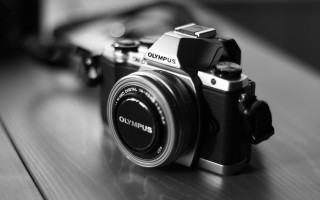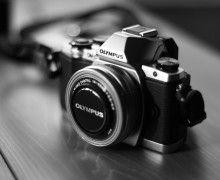What Camera Work Best For You
Choosing between film and digital is not a matter of personal taste anymore. The advantages of the digital environment are quite clear – apart from the obvious costs of working with the film itself, there is a technological progress issue. Camera companies are constantly trying to improve their digital cameras and coming up with new methods of helping you take better photographs – from allowing you to shoot at high ISO values without having to deal with pesky noise, to giving you a great number of options in terms of settings.
With such a great number of digital options, it’s hard to say yes to film, unless you’re an enthusiast of the kind. The truth is, if you want to step onto the professional photography scene, you will have to blend in and go digital anyway. You can’t hope to have so many rolls of film at a wedding, or at a studio portrait session just because it’s what you’re acking to do. The advantages of digital are even more valuable to beginners that will always take a lot of wrong shots before getting things right – it would be easier not having to invest so much in bad shots, for a while anyway.
Full-Frame Sensor vs Digital Sensor
This is quite an interesting conundrum, actually. Most professional photographers consider professional (or Full-Frame) SLRs or medium-format cameras for their work. However, if you are a beginner trying to find your way in the photography world, then it might be wise not to make a large investment from the beginning. The difference between the two types of sensors is their size, which will, in the end make a difference in large-size printing. While professional cameras (like the newly launched Nikon D4) will give you a significant boost in quality, you have to sit and wonder whether it’s worth the investment in the beginning. It’s not even worth going close to medium format cameras for the purpose of this book because they’re certainly not aimed at the beginner sector. Whereas an added bonus of performance and settings is certainly worth looking at, there is a
limit to what a camera can do without the proper training, and in the beginning, a complex camera can be more of a nuisance than an advantage.
Between full-frame sensors and digital sensors, the decision should be one that considers budget, training, and plans. Full-frame cameras are more expensive to begin with, and require lenses that are even more expensive. If you feel you are beyond that initial training point, and you know where everything is, a full-frame camera might be suited to your needs (it’s certainly highly recommended for quality portrait photography). However, note that lenses that suit full-frame cameras are incredibly expensive as well, therefore if your love for photography is only a hobby, make sure you are willing to invest that much in your hobby.



